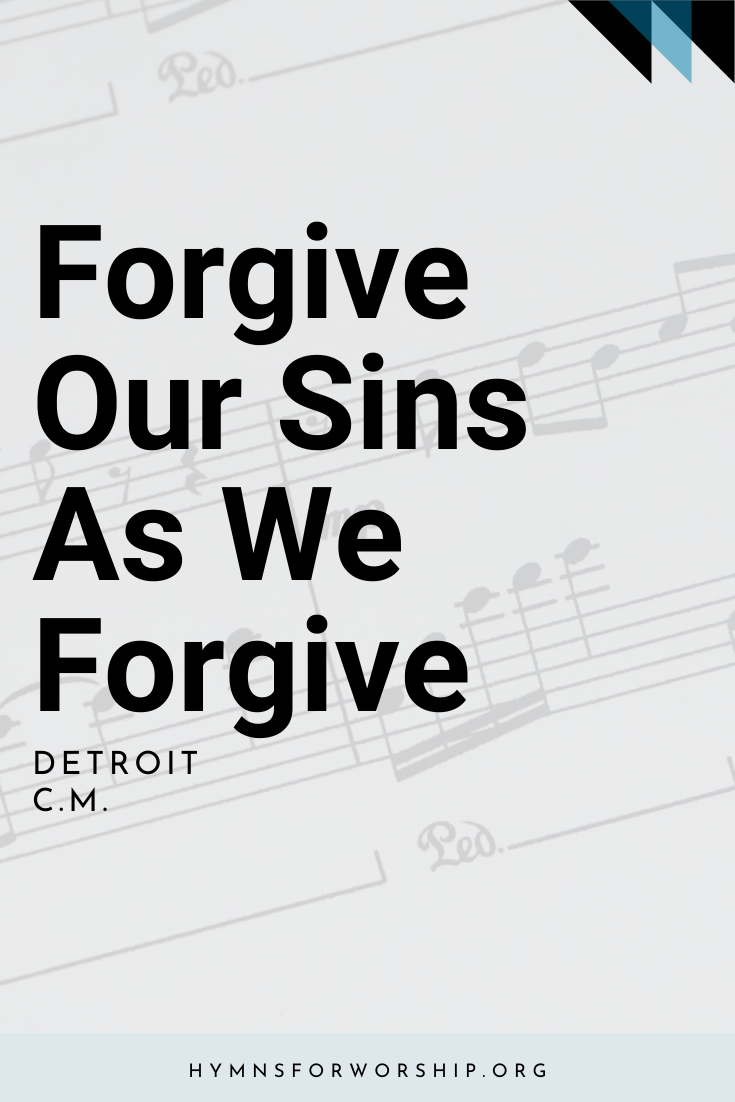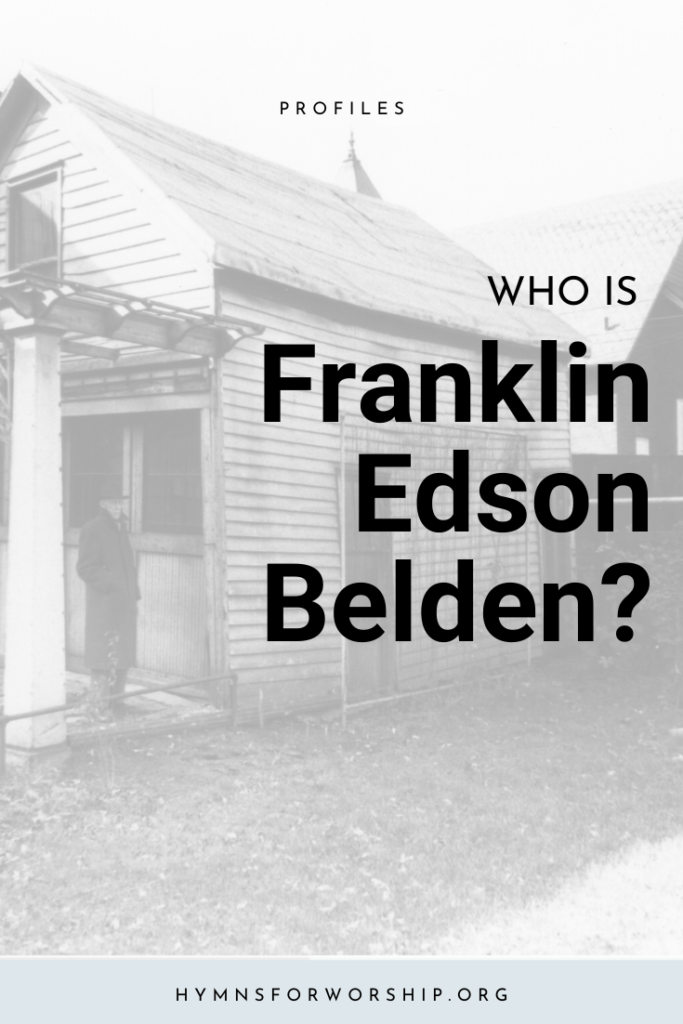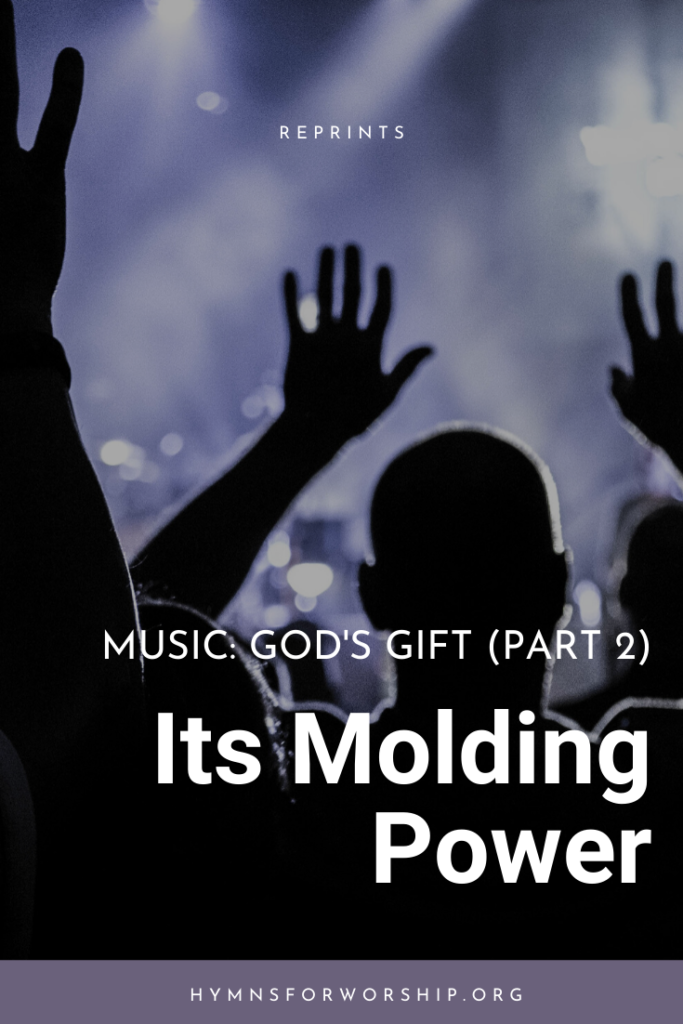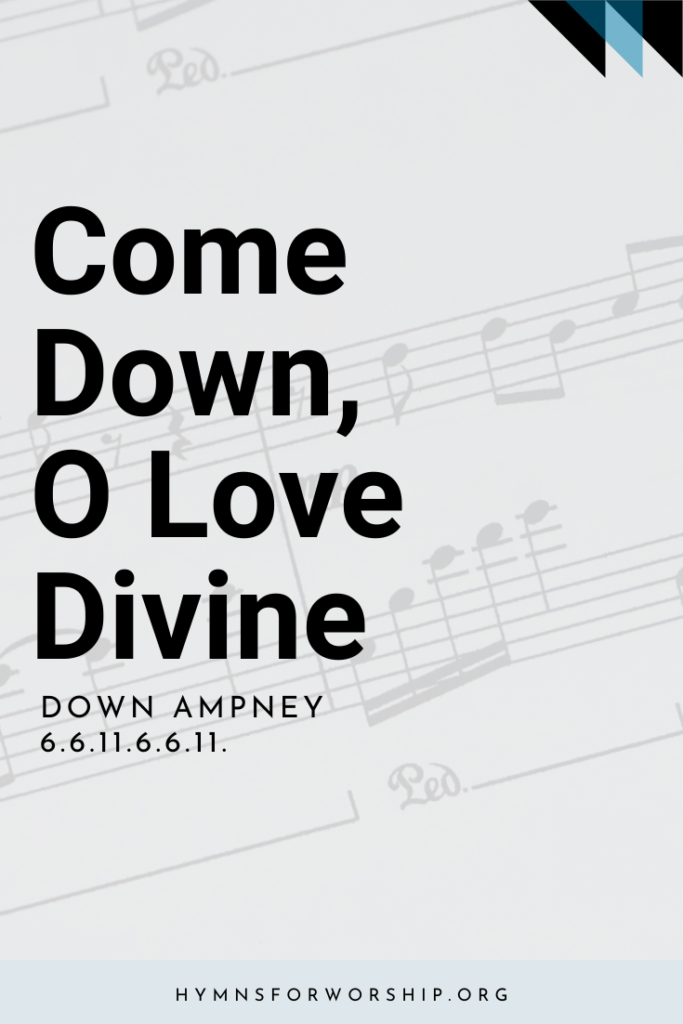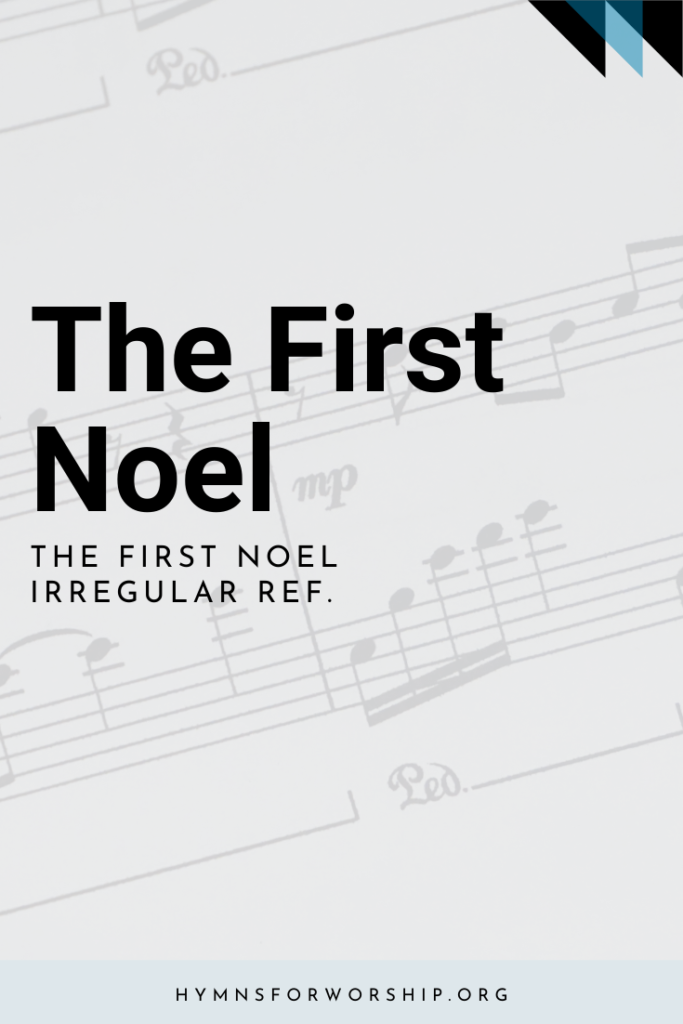GOSPEL >> FORGIVENESS
SDAH 299
“Forgive our sins as we forgive,”
You taught us, Lord, to pray;
But You alone can grant us grace
To live the words we say.
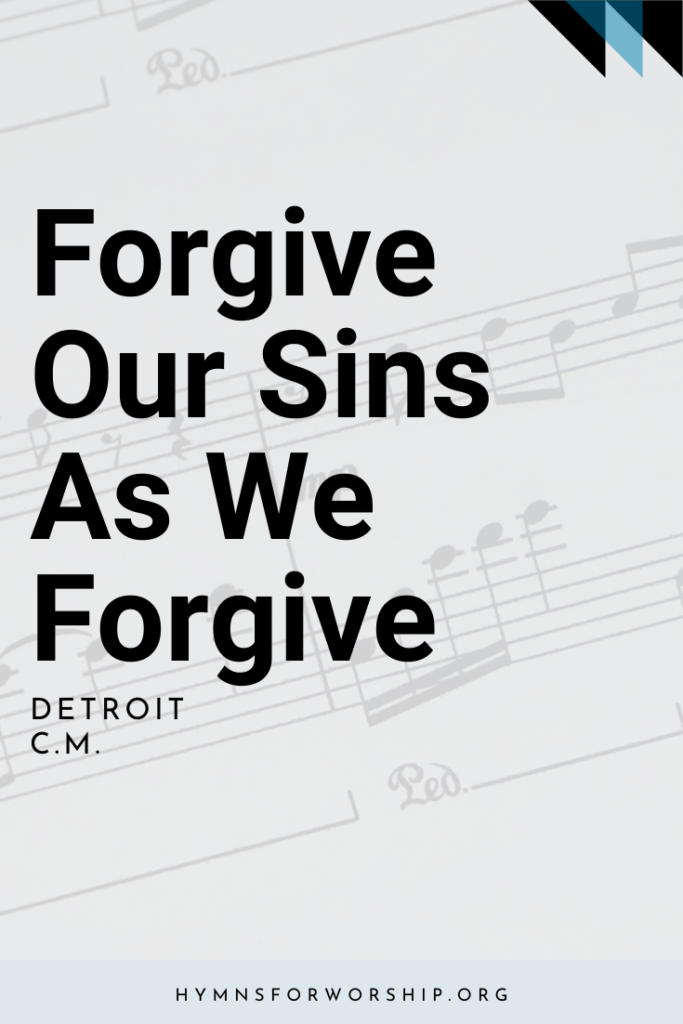

Text
1
“Forgive our sins as we forgive,”
You taught us, Lord, to pray;
But You alone can grant us grace
To live the words we say.
2
How can Your pardon reach and bless
The unforgiving heart
That broods on wrongs and will not let
Old bitterness depart?
3
In blazing light Your cross reveals
The truth we dimly knew:
How trifling others’ debts to us;
How great our debt to You!
4
Lord, cleanse the depths within our souls
And bid resentment cease;
Then, by Your mercy reconciled,
Our lives will spread Your peace.

Hymn Info
Biblical Information
(a) Matt 6:12 (b) Matt 18:35 (c) Matt 18:24, 28 (d) Rom 5:10
Author
Rosamond E. Herklots (1905-1987) alt.
Copyright Information
Words by permission of Oxford University Press. Arrangement copyright 1978 Lutheran Book of Worship. Used by permission of Augsburg Publishing House.
Hymn Tune
DETROIT
Metrical Number
C.M.
Tune Source
The Sacred Harp, Philadephia, 1844
Alternate Tune
MANOAH, SDAH 315
Hymn Score
Piano Accompaniment
Notes
Get to know the hymns a little deeper with the SDA Hymnal Companion. Use our song leader’s notes to engage your congregation in singing with understanding. Even better, involve kids in learning this hymn with our homeschooling materials.
Three aspects of intercession discussed in the lesson (1) Praying for our own people — family members, friends, and other people or situations. God hears our prayers and can intervene. Sometimes it may take longer for a prayer to be answered, but we can rest assured that God never forgets the needs of His children. (2) Daniel’s role as intercessor and mediator for the Israelites — the prophet realizes how sinful the people have become as they transgress God’s law and refuse to hear God’s warnings. Thus, recognizing their desperate spiritual condition, Daniel prays for healing and forgiveness. But the prophet also identifies with his people. (3) Christ as our Mediator — “God made him who had no sin to be sin for us, so that in him we might become the righteousness of God” (2 Cor. 5:21, NIV). (Lesson 10, 1st Quarter 2020 – Tuesday, The Value of Intercession, 3/3/2020)
The Hymnal Companion to the Lutheran Book of Worship quotes the author on how the hymn was written: “The idea of writing the ‘Forgiveness’ hymn came to me some years ago when I was digging up docks in a long-neglected garden. Realizing how these deeply-rooted weeds were choking the life of the flowers in the garden, I came to feel that deeply-rooted resentments in our lives would destroy every Christian virtue and all joy and peace unless, by God’s grace, we learned to forgive.” The hymn was first used in two modern hymnbook in Britain in 1969, then it made its way to America in Lutheran Book of Worship, 1978.
Rosamond Eleanor Herklots’ British parents were living in Masuri, North India, when she was born June 22, 1905. Back at home in England, she was educated at Leeds Girls’ High School and Leeds University. For a while she was a teacher, then she change to secretarial work for neurologist. She wrote verse from childhood, but as she says, hymns “intended to express in simple words of faith, hope, and dedication of the ordinary Christian” came along later in life. In 1978 she was a secretary in the head office of the Association for Spina Bifida and Hydrocephalus in London. She has written about 70 hymns, two of which won places in the final “Telecast of Hymns for Britain” competition.
DETROIT is one of those tunes sometimes classified in the generic Sacred Harp tradition-religious songs in early America that were based on, or composed in the style of, folk songs brought over from England and Ireland. George Pullen Jackson, noted authority on this songs, says in Spiritual Folk-Songs of Early America that DETROIT is found in at least 10 of these shaped-note songbooks, including the 1820 Supplement to Kentucky Harmony; Virginia Harmony, 1831, and Southern Harmony, 1835, where it was credited to “Bradshaw”; and The Sacred Harp, 1844, edited by B. F. White and E .J. King.
The tune is similar to that of “The Wife of Usher’s Well,” an English folk song found by Cecil Sharp in the southern Appalachian Mountains. These are several different rhythmical versions of the tune, the one SDAH uses being from Lutheran Book of Worship, 1978, as arranged by Walter L. Pelz (1926- ), a teacher, and choral conductor at Bethany College, Lindsborg, Kansas, since 1969. Notice the different rhythm in the example printed above, taken from an early edition of The Sacred Harp. (The melody is in the third line down.) This hymn should be sung no faster than the run of the eighth notes in the third measure can be sung comfortably.

